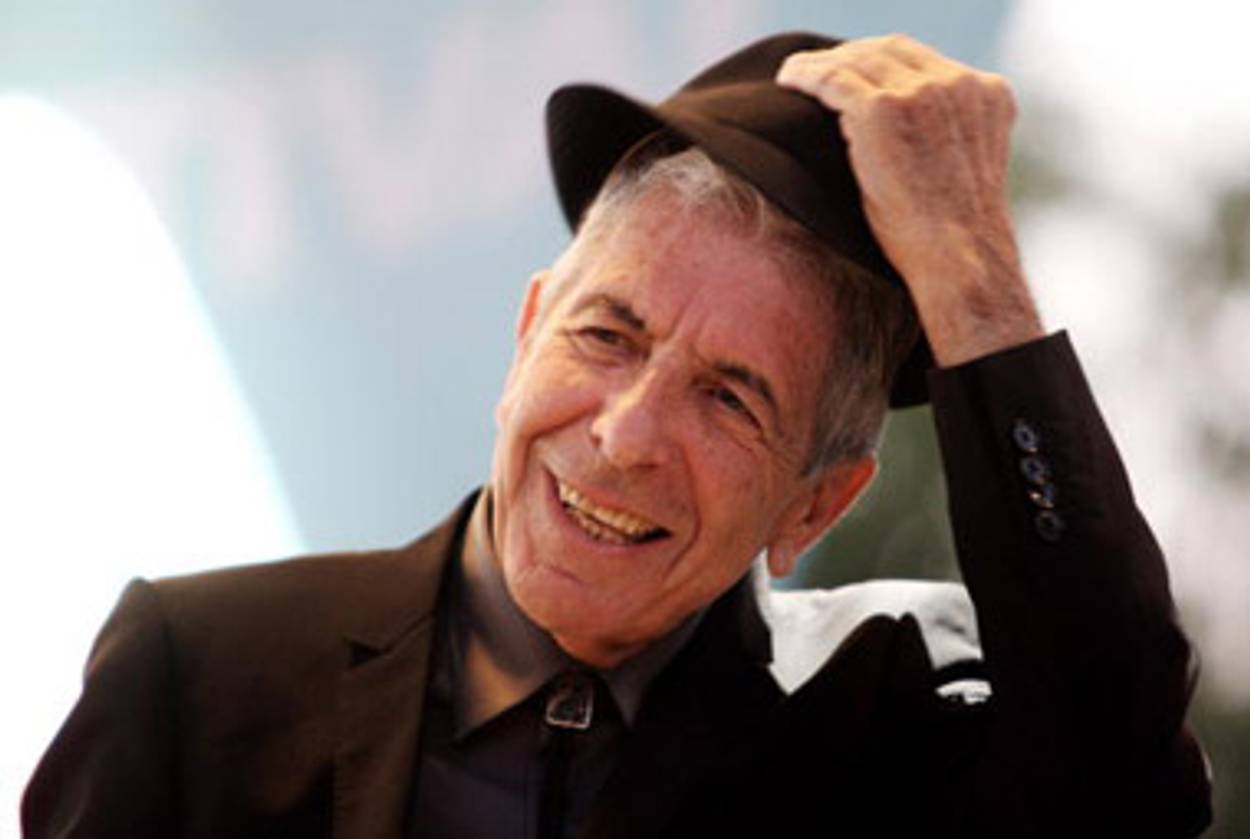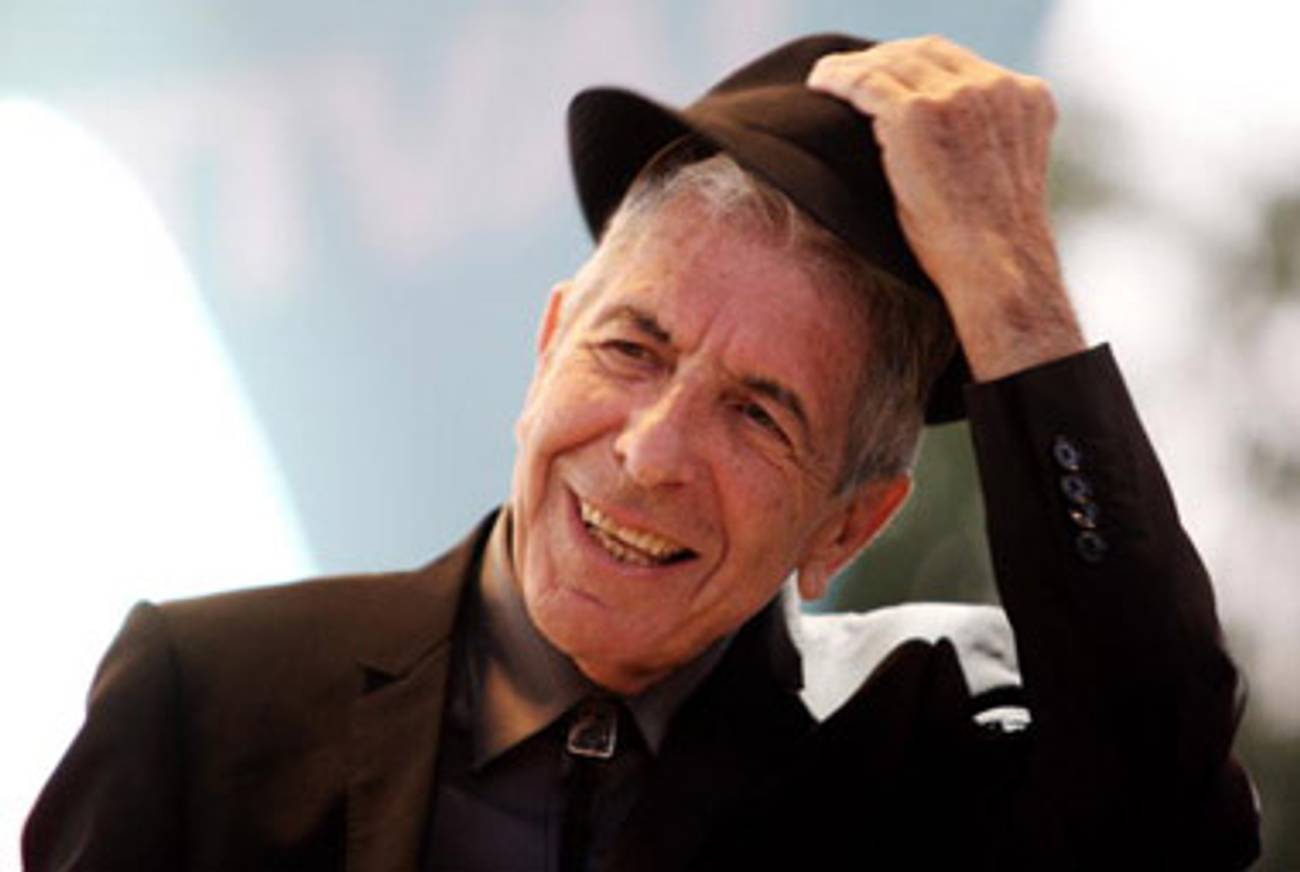Leonard Cohen Makes the Political Personal
With concert in Israel this week, after recovering from food poisoning




During a concert in Spain on Friday, Leonard Cohen collapsed onstage and was briefly hospitalized for food poisoning. This bout with illness, however, is not going to stop the 75-year-old icon from performing in Tel Aviv this Thursday as planned. The Jerusalem Post has taken the opportunity to look back at Cohen’s involvement with Israel, coming to the conclusion that “the singer-songwriter-poet-novelist-monk’s apolitical platform is marked by enough mystique and individualism to keep him from having to wave any specific flag, perhaps even allowing the show to serve as a true ‘Concert for Reconciliation, Tolerance and Peace,’ as it has been billed.”
On the other hand, the article presents some conflicting evidence. In 1973, Cohen “dropped everything to participate in the Yom Kippur War” as an entertainer. He was criticized for his decision to play in Israel, and his detractors were not placated by his offer to play a second show in Ramallah a few days afterward. And, says the Post, “Cohen’s oft-uniformed ‘Field Commander Cohen’ persona, which has informed several works and inspired the title of a 1979 concert tour, grew out of his posturing as a guerrilla of verse, a rogue revolutionary who champions the cause of the underdog.” Of course, when it comes to Israel and the Palestinians it is increasingly unclear who fits that designation.
Rather than being “apolitical,” Cohen’s history suggests that he acts with an artist’s cautious engagement toward politics. The proceeds from his show in Israel will be going to his own new fund dedicated to “little-known but groundbreaking grassroots initiatives,” as a way to avoid supporting either a specifically Israeli or Palestinian cause. Despite his financial troubles, Cohen could not bring himself to reap profits from the performance, saying “I just can’t take any money out. I want it to stay there.”
Leonard Cohen Collapses on Stage During Spanish Concert [Times of London]
Leonard Cohen’s Israel Show Set to Go Ahead Despite his Collapse in Spain [JPost]
Nothing on his Tongue but ‘Hallelujah’ [JPost]
Hadara Graubart was formerly a writer and editor for Tablet Magazine.